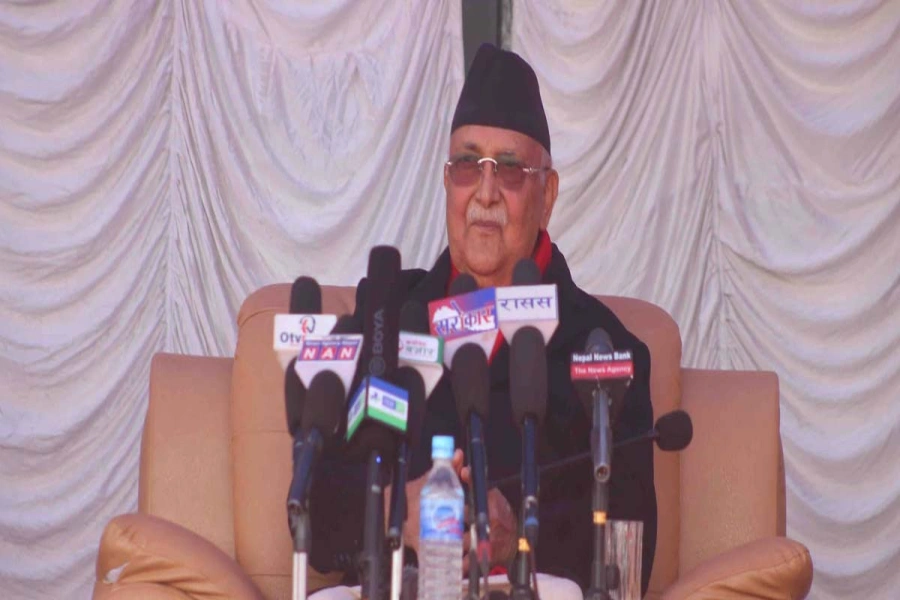Have you ever entered a room with chaos and disorder in their superlatives? Clothes scattered all over the place, papers covering every inch of the table, coffee stains on the floor and tabletop, bedsheets intertwined as if caught in a tornado – this is just the imagery of disorganization.
Disorganization is a lethal weapon against success. Even individuals with high aptitude may lag in practical and professional aspects of life due to disorganization. Despite substantial investments, business startups may struggle with losses if they lack organization. Likewise, disorganized families may fail to instill the necessary skills in their children to succeed in life.
Being organized is among the first lessons taught in settings like military training camps or convent hostels. This foundation sets the stage for greater momentum in more critical areas of life and career. When day-to-day details are in order and plans for the future are clear, we don’t create a stress-free life. Instead, a stress-free life happens to us. It’s an obvious outcome.
Why is being disorganized a psychological disorder?
Psychologists classify disorganization as a psychological disorder rooted in unproductive habits. It’s not merely about occasional lapses in disorganization but rather habitual chaos that may stem from the internal dysfunctions of the individual. A student who can’t locate his books and belongings, a speaker who jumps from one topic to another with no way to land the speech, or a leader whose everyday phrase ends up with ‘I should have done that’, ‘I should have responded to that situation that way’, or ‘I should have seen that earlier’ are glimpses of a disorganized person’s work life narratives.
COVID-19 patients in home isolation recovering faster than thos...

Being disorganized doesn’t just affect personal and professional lives; it can also negatively affect relationships, often leading to misunderstandings, frustrations, and conflicts. For instance, imagine a couple sharing a household where one partner is consistently disorganized, leaving tasks unfinished, misplacing important documents, and forgetting commitments. This behavior can cause the other partner to feel overwhelmed by the extra responsibilities they have to shoulder, leading to resentment and a sense of imbalance in the relationship. Moreover, the disorganized partner's inability to keep track of shared responsibilities may result in missed appointments, late payments, and further chaos in the household, which can further strain the relationship. A possible outcome of this mess is eroded trust, communication, and intimacy between partners over time. This is how disorganization can have detrimental effects on relationship dynamics.
Three major wings of disorganized life directly affect daily life and a successful career. They are procrastination, decision paralysis, and physical disorganization leading to mental clutter.
Procrastination is a bed of thorn: Procrastination is a common psychological challenge that hinders organizational efforts. It often leads people to delay tasks, resulting in a mounting backlog of responsibilities and heightened stress levels, anxiety and even leading to depression. It is closely linked to impulsivity and poor self-regulation, as individuals prioritize immediate gratification over long-term goals. When faced with a tedious task, such as completing an assignment, choosing to browse the social media often provides immediate pleasure. Additionally, hidden cognitive weakness, where individuals place greater value on immediate rewards to future benefits, further exacerbates procrastination tendencies. Understanding the psychology of procrastination involves unraveling intricate layers of emotion, cognition, and behavior contributing to this pattern and developing strategies to mitigate its detrimental effects on productivity and overall well-being.
Disorganization feeds into decision paralysis: Decision paralysis, a psychological phenomenon, manifests when individuals are overwhelmed by the array of choices before them, causing them to be unable to make a decision. This indecision often arises from fear of making the wrong choice, uncertainty about outcomes, and pressure to select the optimal option from many possibilities. The abundance of choices in modern life, spanning from trivial matters to significant life decisions, exacerbates this paralysis, triggering feelings of anxiety, stress, and frustration.
The consequences of decision paralysis can be far-reaching, stalling progress, hindering productivity, and impeding personal growth. To overcome this obstacle, individuals can adopt various strategies, such as breaking choices down into smaller numbers of options, taking manageable steps, and envisioning and setting clear priorities. By embracing decisiveness and cultivating confidence in their ability to make choices, individuals can navigate the complexities of decision-making with greater ease and clarity.
Physical disorganization leads to mental clutter: Clutter in physical spaces can reflect and exacerbate mental clutter and the chaos within the mind, making it challenging to focus and prioritize tasks. Disorganization can lead to wasted time searching for misplaced items and increased stress. Gradually, it leads to feelings of low self-esteem and the tendency to make excuses for disorganization.
Both physical and mental clutter permeate an individual’s well-being and productivity. In physical environments, clutter accumulates due to indecision, procrastination, and inability to manage possessions effectively. Have you experienced postponing your plan of cleaning and wondering how you would want to rearrange your office? The mind is then heavier with options and struggles to arrive at a decision to give up the effort in half. This clutter impedes efficiency by creating visual distractions and obstacles and adds to increased stress levels. The sight of a messy room, cluttered cupboard, or disorganized workspace can drain an individual’s energy and concentration.
Similarly, mental clutter, characterized by a disorganized thought process and an inability to focus, arises from an overload of information, unresolved tasks, and emotional turmoil. This disarray in the thought process impairs decision-making abilities and diminishes mental clarity. This is why someone may ask for opinions and suggestions from others and yet be unable to reach a sound conclusion. They frantically look for the best suggestion to help them make a decision, not knowing they have lost clarity of thoughts and are unable to analyze their past experiences to come to a sound conclusion. There is a visible correlation between physical disorganization and mental clutter, as both feed into each other and contribute to a sense of chaos.
Overcoming disorganization and resettling for success
To win over disorganization, addressing these psychological hurdles through a blend of self-awareness, behavioral strategies, and, at times, professional support is essential. The wake-up call is to see the mess we are in with utter honesty and humility. Practicing mindfulness and seeking assistance from trusted allies can help individuals navigate these obstacles and pave the way toward a more organized lifestyle.
Simple yet effective techniques, like breaking tasks into smaller manageable steps and setting realistic goals for the day, can yield profound benefits in life. Getting organized begins with these basic steps of planning our day-to-day lives and making them coherent. An organized life not only enhances productivity but also fosters a sense of empowerment. The confidence gained from having our lives organized propels us toward greater success and fulfillment.
Addressing clutter and disorganization involves not only decluttering physical spaces but also adopting strategies to organize thoughts, tasks, and priorities. By cultivating mindfulness, practicing intentional decision-making, and implementing effective organizational systems, individuals can alleviate the burden of clutter and create environments conducive to productivity and peace of mind.
All begins with one baby step!





































